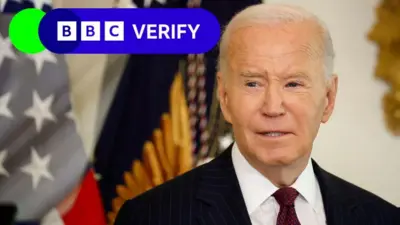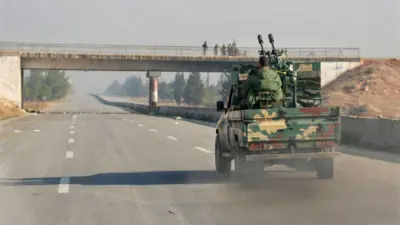We've updated our Privacy and Cookies Policy
We've made some important changes to our Privacy and Cookies Policy and we want you to know what this means for you and your data.
Government to review 'fixed-odds' gambling machines
Image source, PA
Top Stories
The government is to review gambling machines amid concerns they may harm vulnerable people.
As many as 600,000 people in the UK may take part in "problem gambling", said culture, media and sport minister Tracey Crouch.
The review will take a "close look" at fixed odds betting terminals (FOBTs) - now common on high streets - and children's access to gambling.
Labour welcomed the review, saying it was "long overdue."
The Gambling Commission, which regulates the industry, said it was an "excellent opportunity" for all those with an interest in gambling to have their say.
Top Stories
The Association of British Bookmakers has previously stated that any review should be "evidence-based and not unfairly penalise the majority who gamble responsibly and enjoy their leisure pursuit". It has said that FOBTs have been in use for around 15 years "and yet problem gambling levels have remained stable".
Government figures suggest the gambling industry employs around 100,000 people in the UK and contributed more than ┬Ż10bn to the economy last year.
But, amid concern over associated social problems, the Department for Culture, Media and Sport-led review will assess its impact on individuals and communities.
Fixed odds betting terminals
Top Stories
- Also known as FOBTs or B2 Gaming Machines
- Touch screen electronic gaming machines found in betting shops across the United Kingdom
- Customers can play casino games such as roulette, poker and Black Jack, and electronic slot games and virtual racing
- Maximum stake is ┬Ż100, though the industry voluntarily introduced a ┬Ż50 limit unless a gambler asks to stake more
- Maximum prize money is ┬Ż500
This will include working out measures to protect children and vulnerable people from the impact of gambling advertising.
It will also look at FOBTs, users of which risk losing hundreds of pounds in minutes as they involve simple games like roulette, played at a fast pace.
The review will consider whether the current maximum stake of ┬Ż100 is acceptable, as well as the value of prizes offered by the machines.
Ms Crouch said: "It is important that gambling regulations strike the right balance between allowing the industry to contribute to the economy and enable people to bet responsibly whilst ensuring consumers and communities are protected."
Labour's culture spokesman Tom Watson said: "The government has finally woken up to the fact that it has not done enough to curtail the proliferation of FOBTs, which are now a blight on many of our high streets.
"They can cause real and lasting damage to gamblers and they have become a huge problem for communities that are often struggling to cope with under-investment and high unemployment."
The coalition government acted on FOBTs in 2015, changing regulations to ensure that gamblers playing with stakes of ┬Ż50 or more would have to load money into the machine via shop staff or by setting up an account.
Sarah Harrison, chief executive of the Gambling Commission, said: "We're very pleased that the review has been announced and that we have a clear timetable - it offers an excellent opportunity for all those with an interest in gambling to ensure their voices are heard. I would encourage any interested parties to share their views with government.
"As the regulator of gambling in Britain and committed to keeping gambling fair, safe and crime-free, we will be submitting our advice to government in line with our statutory duties."
Simon Blackburn, chairman of the Local Government Association's Safer and Stronger Communities Board, said: "Councils have long called for a review into gaming machine stakes, so the announcement by the government today is a significant step in the right direction.
"Councils up and down the country are worried about the number of high-stakes FOBTs and betting shops on our high streets. Someone playing on a machine can lose ┬Ż100 in a matter of seconds in a single play on an FOBT. This is money many people can't afford to lose."
Top Stories
More to explore
Most read
Content is not available








